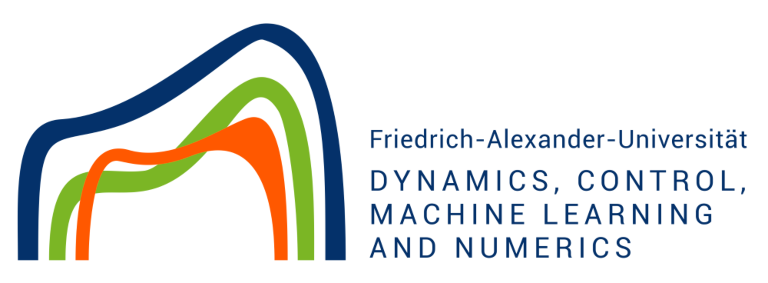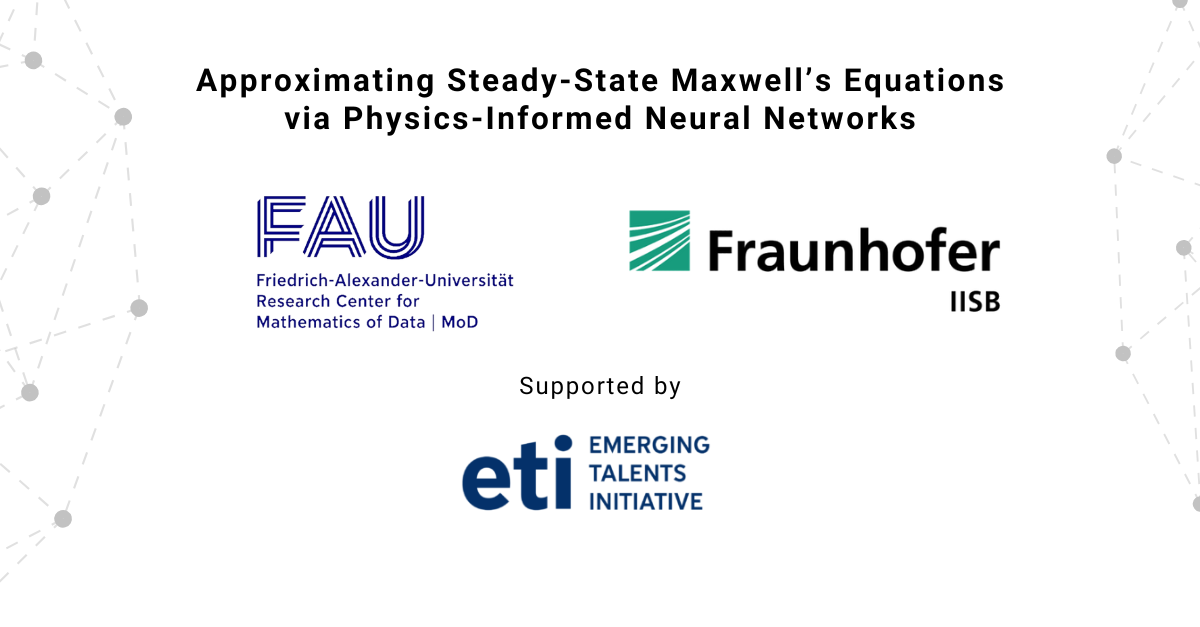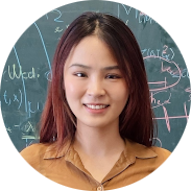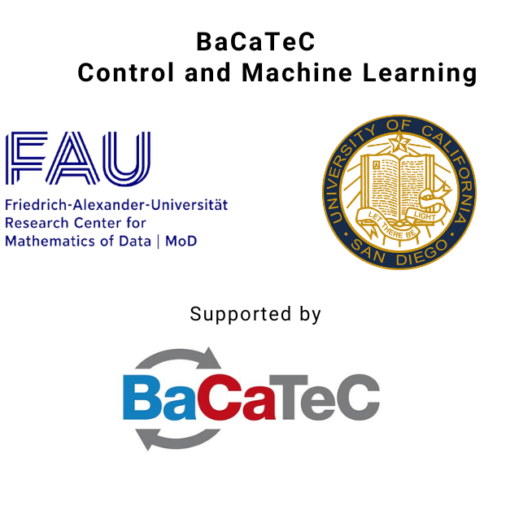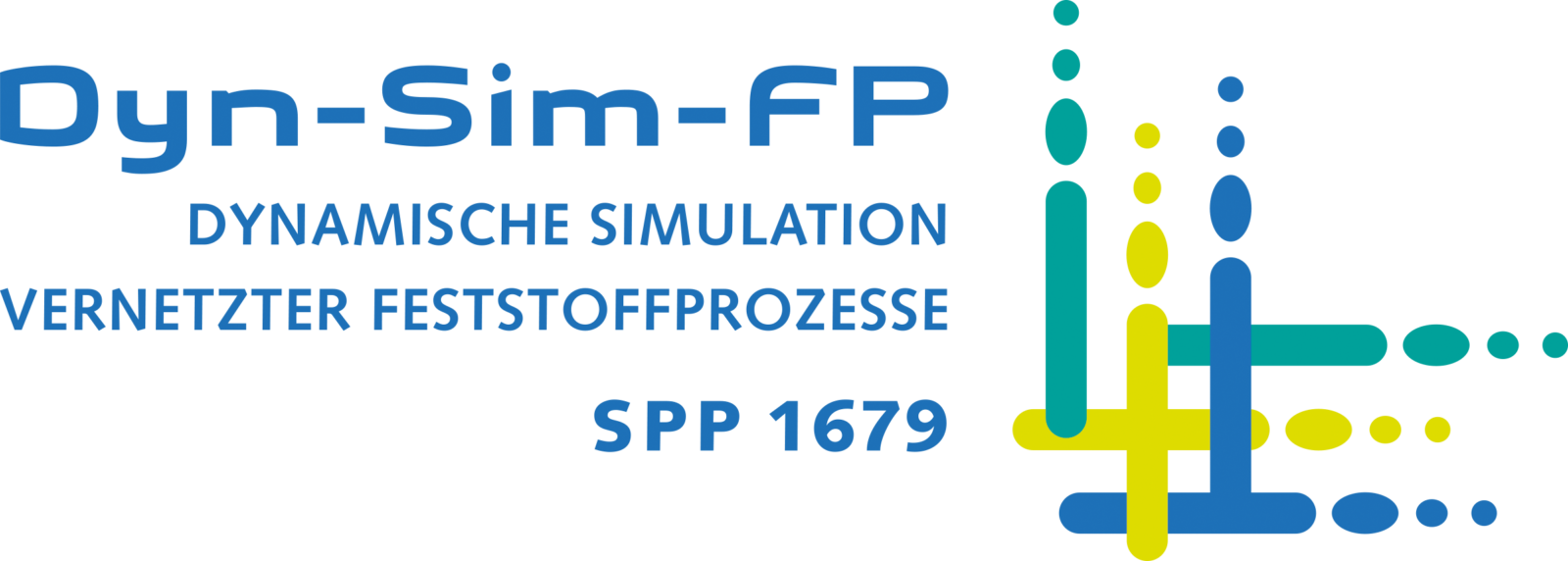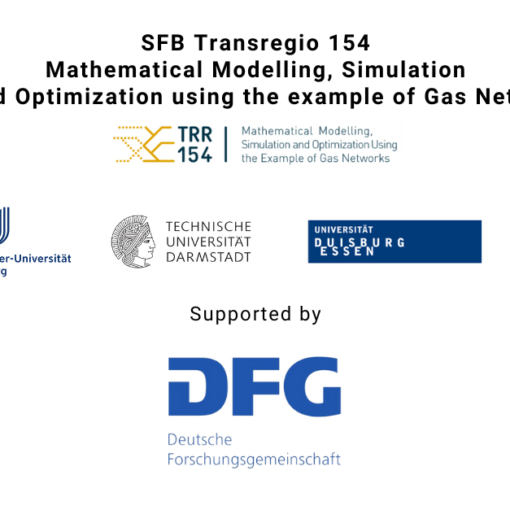Approximating Steady-State Maxwell’s Equations via Physics-Informed Neural Networks
(Applications are welcome for the research internship positions for a Master thesis)

- Project No. 5500168
- Institutions: Friedrich-Alexander-Universität Erlangen-Nürnberg, Fraunhofer IISB (Erlangen)
- Supported by the FAUeti, Emerging Talents Initiative at Friedrich-Alexander-Universität Erlangen-Nürnberg
- Duration: 2022 – 2024
In recent years, Physics-Informed Neural Networks (PINNs) have started to arise frequently in many areas of science and engineering. PINNs are revolutionizing the way many physics-related problems are solved by combining classic Neural
Networks explicitly with the underlying Physics of a certain problem.
This is a collaboration with Fraunhofer IISB, Erlangen.
People involved
Scope/Goal
In recent years, Physics-Informed Neural Networks (PINNs) have started to arise frequently in many areas of science and engineering. PINNs are revolutionizing the way many physics-related problems are solved by combining classic Neural Networks explicitly with the underlying Physics of a certain problem.
The intrinsic Machine-Learning (ML) nature of PINNs enables huge speed-ups for simulations at inference time (i.e., after training) while the introduced Physics ensure the conservation of the physical laws behind the problem.
We consider a Use-Case from Power-Electronics, more specifically the topology optimization of a ferrit core for a choke or coil, which requires accurate and fast prediction of magnetic flux and field intensity inside the system.
This task is tackled by:
• Deriving an adequate mathematical description based on the steady-state Maxwell Equations (2D symmetric) with corresponding Initial- and Boundary-Conditions [1].
• Enhancing frameworks such as Nvidia Modulus for reproducible training, evaluation and visualization of PINNs [2].
• Application of Hyperparameter-Tuning and other ML-Enhancing Techniques like Loss-Balancing for PINNs [3]. This Project is a collaboration with Fraunhofer IISB, Erlangen.
Publications
[1] J. Lima, D. Psaltis. MaxwellNet: Physics-driven deep neural network training based on Maxwell’s equations, https://aip.scitation.org/doi/pdf/10.1063/5.0071616 [2] A Framework for Developing Physics Machine Learning Neural Network Models, https://developer.nvidia.com/modulus [3] Bischof et al., “Multi-Objective Loss Balancing for Physics-Informed Deep Learning”, 2110.09813.pdf (arxiv.org)|| Go to the Projects main page
